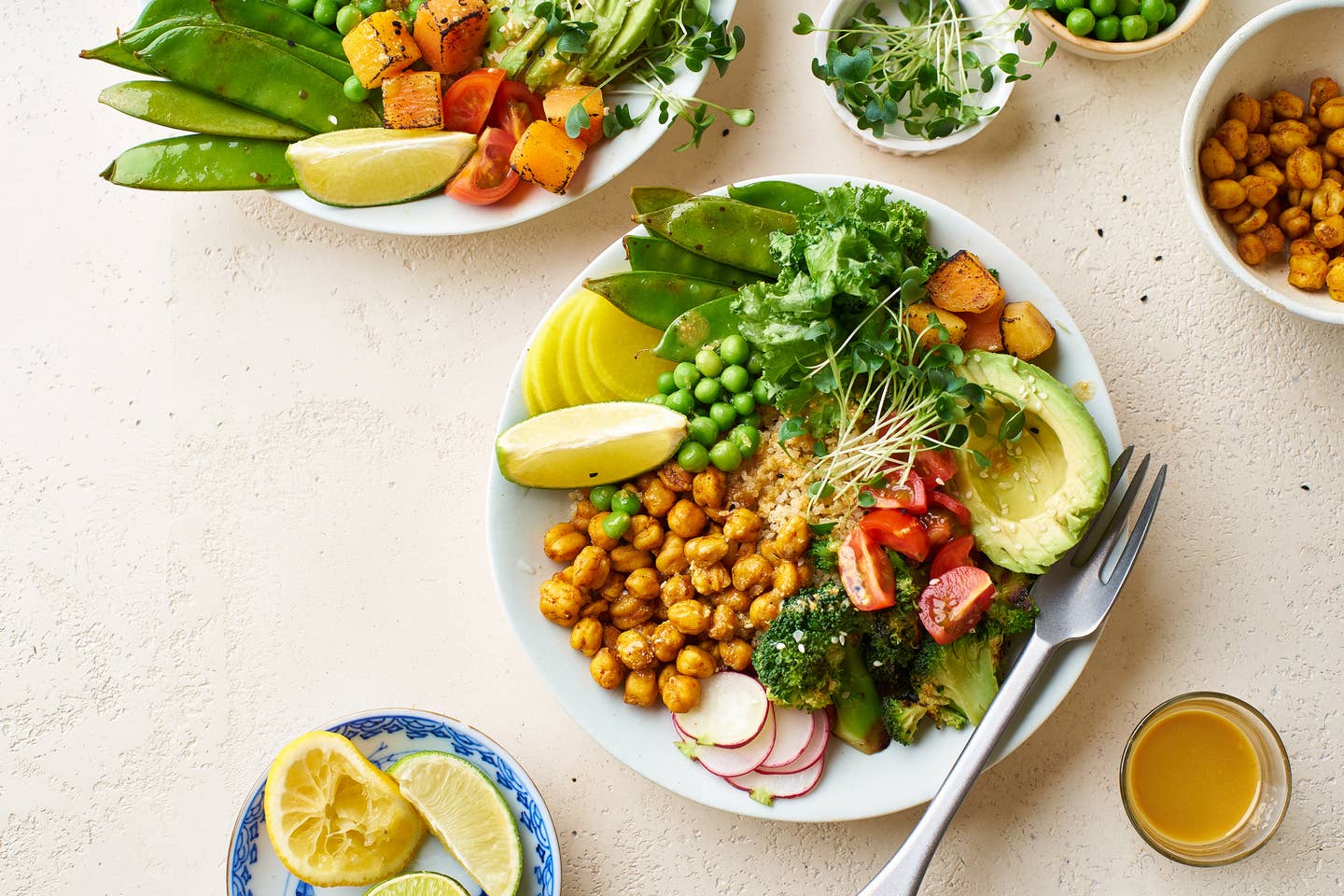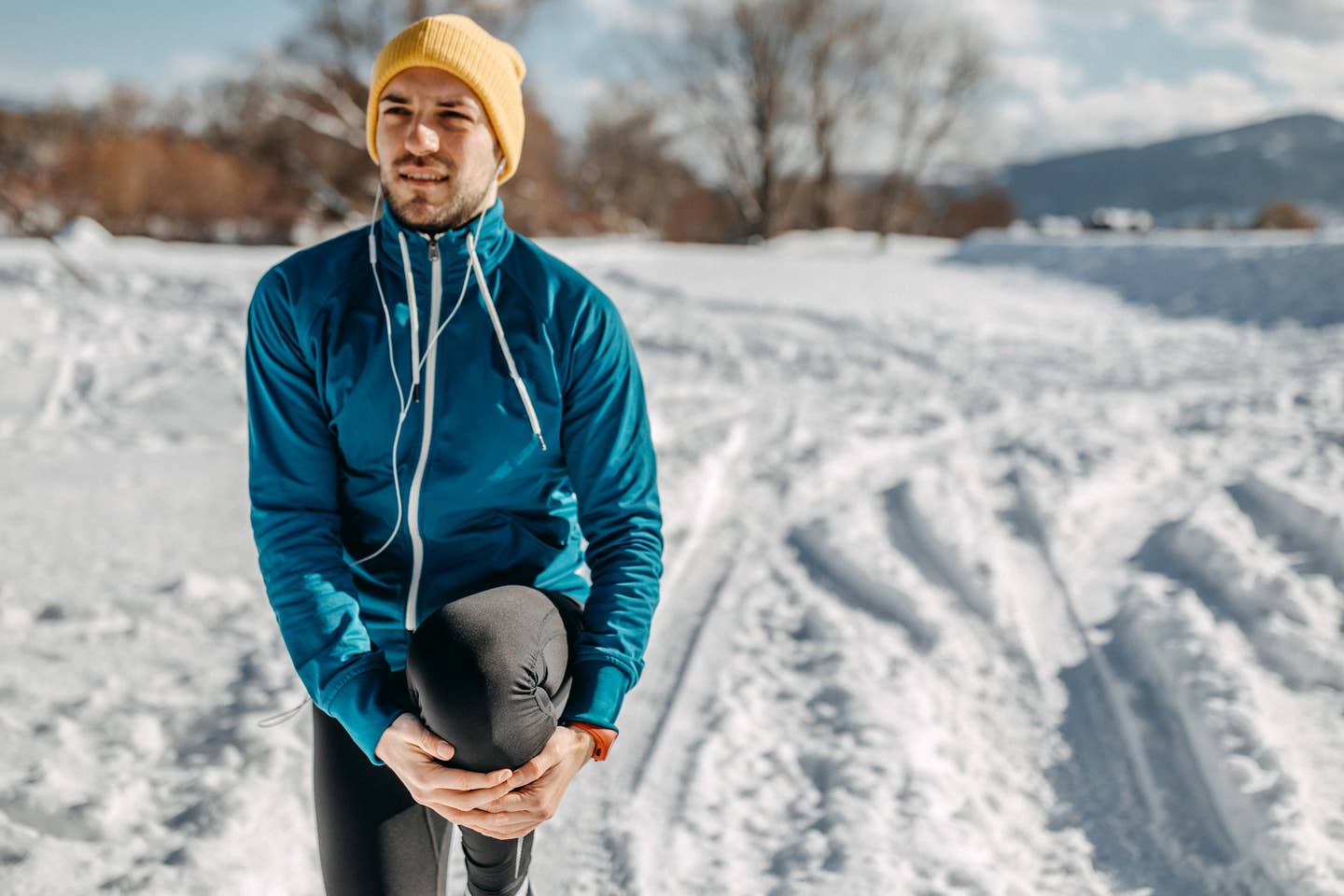
This Farmer-Turned-Doctor Shares His Tips of What to Eat for Happiness
April is National Stress Awareness Month, a time dedicated to reflecting on stressful situations, learning new coping mechanisms, and spreading awareness of the modern stress epidemic. Rates of stress were already rising prior to the pandemic and now, they are at an all-time high, according to the American Psychological Association. Studies have shown that what we eat directly impacts how we feel, which is incredibly helpful in alleviating symptoms of stress and cultivating happiness, according to Dr. Drew Ramsey, MD, an organic farmer, the founder of the Brain Food Clinic in New York City, and the author of many books, such as The Happiness Diet and Fifty Shades of Kale.
Dr. Ramsey is a nutritional psychiatrist who regularly counsels individuals on how to incorporate healthy foods and nutritional habits to improve their mental health. He recently released a new book, Eat to Beat Depression and Anxiety: Nourish Your Way to Better Mental Health in Six Weeks – a revolutionary prescription to boost brain health and promote mental wellness with the 12 essential vitamins and minerals most critical to your brain and body. In an exclusive interview with The Beet, Dr. Ramsey talks about how nutritious food is the most powerful medicine, the best diet to feel happier, and how eating locally empowers communities. Let his words inspire you to de-stress and nourish your way to better mental health with the power of healthy plant-based fare.
The Beet: Tell us what motivated you to study brain health and nutrition.
Dr. Drew Ramsey: I love science and nature. In college and medical school, it blew my mind that we understand how the brain communicates and some of how it functions. Psychiatry and brain health seem like one of the last frontiers of medicine. I have always been interested in healthy eating.
My parents were into organic food and growing some of their own food in the 1970s on our farm in Indiana. It just really struck me that eating choices should center around brain health and no one in psychiatry was talking about food. I knew that needed to change.
TB: Congratulations on your new book, Eat To Beat Depression And Anxiety. What inspired you to write it?
Dr. Ramsey: I’m a psychiatrist and as a physician treating depression and anxiety, I see the breakthroughs and limitations of our current model of mental health. Food is missing. Prevention is missing. Patient empowerment is missing.
Oftentimes, the science of nutritional psychiatry is misrepresented or the arguments for better brain nutrition are framed more around medications than about personal outcome. Based on my clinical experience and brain health evidence, I believe people feel better when they eat nutrient-dense foods and cut out some of the elements of a Western diet that seem to be accelerating our mental health epidemic.
TB: You're giving a prescription for food –– how can healthy food heal and nourish our brain and body?
Dr. Ramsey: Food is medicine. It is our most powerful medicine. Yet, it is not our only medicine. Food is medicine was simply not being applied in the mental health setting. We’ve been working for a decade to change that. Plans help us because they provide a framework. We can all get overwhelmed with the amount of noise in the food debates.
I ask people to really step back and re-examine their personal food values and then the plan walks everyone through five food categories key for mental health and a final week asking people to better connect with their food roots and community.
TB: Tell us about the field of nutritional psychiatry. How is this field aiming to redefine lifestyle medicine by harnessing the power of nutritious food?
Dr. Ramsey: My hope is that people respect the powerful connection between our food choices and our most important asset: our brain. Traditional healthcare is oriented around the vast burden of illness we have in our country. Still, lifestyle medicine is known to be the most powerful tool we have for prevention...but prevention is not how our mental health care system has ever functioned.
Nutritional psychiatry is really focused on improving the evidence-based and clinical integration of nutrition in the mental health setting. The first randomized clinical trial to use food to fight depression was published in 2017. We are in the midst of a massive evolution in how we treat mental health. Food will be part of the new model.
TB: By following the action items in your book, is it true that we can improve our mental health and feel happier within just six weeks?
Dr. Ramsey: Yes. Some changes can happen more quickly. I chose six weeks as this is the amount of time prescription antidepressants need to take full effect, four to six weeks. The new ideas in the book - neuroplasticity, inflammation, and the microbiome, take some time to shift and then the downstream effects of this need a bit of time. If you can decrease inflammation and foster the expression of more brain growth factors via your diet...well that really mimics the way we understand how antidepressant and anti-anxiety medications work.
TB: We also love your books, The Happiness Diet, Eat Complete, and Fifty Shades of Kale. What kind of diet do you recommend for brain health?
Dr. Ramsey: Thank you! I’ve learned so much from each book and hope that people see my progression.
I recommend food categories by looking at the data for a variety of plant-based and whole foods. That said, a nutritional psychiatrist is a different beast in the food advice space. We are psychiatrists and mental health professionals and so we get very interested in helping people find fulfillment as eaters. If that’s vegetarian, or vegan, or keto, or intermittent fasting, we feel our job is to help people understand the brain and mental health impacts and support them as eaters.
TB: What is your favorite plant-based food?
Dr. Ramsey: Honestly, during the pandemic, potatoes have been my favorite vegetable. They gave me ample potassium and comfort all in one sheet pan.
Kale is my spirit vegetable. She was my muse for 50 Shades of Kale and my teacher about nutrient density. The details about my relationship with kale are in my new book for those that are interested.
TB: Why is it important to eat local or grow your own foods? As a farmer, what has been the most rewarding for you?
Dr. Ramsey: Local farmers and small farms. These are the most special ecosystems on our planet. Food builds community like nothing else. And few things empower a community like having local food. It tastes like home. For me, the most rewarding part is the miracle of it. Truly. It blows me away like a magic trick every year. This tiny speck of seed becomes a massive tomato plant or a row of basil for endless pesto. That and the summer we leased lactating goats. In nature or a farm, you can often see your place in the natural world. It’s settling.
TB: What are some things individuals can start doing for their mental health now?
Dr. Ramsey: I’ve learned an important lesson in mental health. There is never just one thing. And so I’ll recommend the following to entertain: Pesto. Stop drinking alcohol. Go to bed at 9 pm. Watch the sunrise come up every day. Be patient and loving towards yourself. Love others.
You have the gift of a human brain, nourish it and make sure to enjoy it too.
More From The Beet






